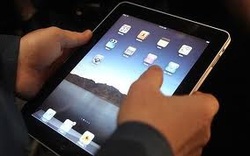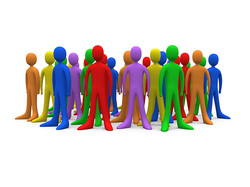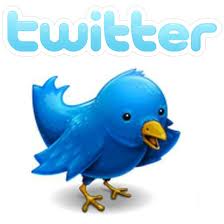 Being a former journalist, I was intrigued by an article I recently read about a newspaper that will have no “print” or “web” edition. Called The Daily, the newspaper will be available on devices such as the iPad at 99 cents per week, or $52 per year, and will have news updates available three times per day. Available sometime in early 2011, the digital newspaper’s headquarters will be in New York City and it will have a staff of about 100. First of all, I have a few questions about the “inewspaper.” What will the content of the news be? Similar to USA Today it that it’s general news about the world? Who will write the articles? The newspaper’s own reporters, or will it just be articles pulled from the Associated Press wire? What format will the newspaper be in? Actual full-length articles, or news similar to a Tweet? What will be different in this newspaper versus a free one? What will make people want to purchase this newspaper? Depending on the answers to these questions, the inewspaper is something I would definitely consider purchasing. Overall, I think an inewspaper is exactly what is needed in the journalism world. I think it’s what’s next in terms of news, and I think in the next decade or so more newspapers will be (or should be) adapting something similar. However, I wonder if people will purchase this newspaper, especially when they can get news for free from their local newspaper’s Web site, or from Web sites such as CNN or FoxNews? For example, right now I receive all my news online. I go to the Milwaukee Journal Sentinel’s Web site a few times per week, and also two local newspaper’s Web sites in my hometown. I’m also known to go to a few different national news Web sites a few times per week. I receive all of my news for free, so why would I pay for something extra? I would need a pretty good reason. On the other hand, maybe it’s just me. Maybe I’m one of the few that wouldn’t pay for an inewspaper. Maybe I will find a reason to pay once I have a stable job and am not a graduate student on a budget. Another point I want to make is that it’s hard for me to think about a demographic that might be attracted to the inewspaper. On one hand, it might be college students or young working professionals because of the digital attraction. But on the other hand, I’m not sure I can see this demographic paying for a newspaper. I can see the older generation paying for it, but I can’t see many of them being that digitally savvy. Needless to say, The Daily has certainly peaked my interest and I’m curious to see how it will pan out. To read the articles that sparked this blog, visit here or here.
 I recently saw this quote (the title of this post), by Daniel Patrick Moynihan, in a column written by Ted Koppel in the Washington Post. For those who don’t know, Moynihan was a New York senator under President Kennedy’s administration, all the way up to President Ford. I was drawn to Koppel’s column because it was about something that has been bothering me for a while. The “news” doesn’t seem like “news” anymore. In fact, I honestly don’t even remember when news was just the facts. It seems like most news I hear, read, or listen to, has some sort of bias, even if it’s not apparent up front. I’ve read articles about the same topic on FoxNew’s Web site, then on CNN’s Web site. They’re essentially about the same topic, but written from very different angles. I remember doing this around the time of the Gulf oil spill last spring. FoxNews’ article focused on how the Obama administration wasn’t doing enough, and how often Obama himself was on vacation. CNN’s article focused on Obama’s trips down to the Gulf and how he was helping out. It’s not that either of the articles is reporting false information. But stories are probably reporting facts, but it’s interesting to note how each chose to focus on different “facts,” thus representing their own bias. I had a conversation with my parents about “news” a while ago. They said when they were growing up (in the 60s and 70s) that news was news. They watched the nightly news on one of the three channels they got and that was it. Then cable came along and news somehow changed. Now we have two main polarized cable “news” channels – FoxNews and CNN, which tend to lean conservative and liberal, respectively. Of course, each claims to be an unbiased news source. And to some extent, they are. They both report facts – it’s just the way they report them that makes them different. However, shows such as Bill O’Reilly, Glenn Beck and Keith Olbermann, aren’t “news.” But I think some viewers take it as news. I’m not normally a huge Koppel fan, but he makes some good points in his column – that news stations tell viewers what they want to hear to reinforce his or her political beliefs, and that although news can be bias, true objectivity is pretty much impossible to accomplish. One of the things I remember learning while majoring in journalism at Western Michigan University in undergrad, was exactly that; that no matter how hard you try, you simply cannot be totally unbiased. Even a certain quote a reporter chooses to use – if he or she uses one over another – is bias. The way a reporter chooses to angle a story, focusing on one aspect instead of another, is bias. It’s might not be politically bias, but it’s still bias. I don’t think it’s just FoxNews and CNN, however. I think the general news, whether it is a local newspaper, TV station, or the AP wire, has its own bias. That doesn’t mean the bias is necessarily political though. As I said before, I don’t think anything is truly unbiased, no matter what the topic. As things change, and as news is portrayed on cable channels and on the internet, I think people must become better, more thoughtful consumers. We can’t just read, listen to or watch a news story and instantly believe everything it has to say. We must critically think about “facts” in the news and why a story is angled a certain way. Wouldn’t it be nice if everyone realized this and questioned stories in the news more often? Or, on second thought, shouldn’t “news” be “news” so people don’t have to question a stories’ truthfulness? If you’re interested, you can read Koppel’s column here.
 Browsing through Mashable.com today, one main story caught my eye. It was a story about a new social networking site called Path. Spawned from the idea of Twitter, Path allows users to make random updates and see what others’ updates are as well. What makes Path different from Twitter, however, is that it only allows users to have a maximum of 50 friends. Path’s “thing” is to have a more intimate social networking site so users don’t have to worry about what they share because only their closest friends will see it. Path also claims to be focused on “intimate photo sharing.” When users update Path, they must share their photos with three things to give them context: a person, place and thing. Being a photo person and a person with only a few close friends, I can see how this sight might catch on. One thing I’ve always disliked about Facebook and Twitter is that, especially with the younger crowd, it seems to be a popularity contest of who has the most friends and whose wall gets written on the most. Photos give a social networking site more of a personal touch, and more of an “intimate” feeling – which is exactly what Path is going for. It would be nice to, say, go on a trip, take a photo and have only a select few people see it. I think sometimes on Facebook, not everyone cares to see your new haircut or pictures of how big your belly has gotten in your final trimester. But, close friends and family probably do. Path would be perfect for that. I think Path might attract an older demographic – those who have 50 or fewer friends on Facebook and only care to use it to keep in touch with family and close friends. However, I’m pretty sure the point to Path is similar to Twitter; more of an instant gratification thing, done more on a smart phone than on a computer. I just can’t picture my parents carrying around a smart phone, taking pictures of random things and sharing it. I also don’t know if they would have the motivation to do that or learn how. I can see my parents maybe uploading a picture or two a week – not per day, which is usually how many times people Tweet. But then again, maybe Path won’t be used like Twitter; why would it have to be? I’m not sure Path would work for people who feel like they have to have 100 friends to feel OK about themselves. Many people would hear they would be limited to only 50 friends and not even bother to try it. I really think 50 friends is enough. Who actually knows every single Facebook friend they have; especially those with more than 500 friends? Overall, I think Path is a good idea. I think it may help create a more intimate feel for a social networking site. I don’t think it will ever be as popular as Facebook or Twitter, but why does it have to be? To see the Mashup article on Path, click here.
 I’m in a debacle. I’m not a fan of Twitter whatsoever, but I feel compelled to join. I feel a little guilt that I’m not on it because pretty much every speaker we have in class says we should for job opportunities. But I really just don’t want to join.
One reason I haven’t joined yet is because I like to have a little disconnect from being “connected.” I purposely don’t have internet on my phone for this reason. I’m already on my lap top enough. I check my e-mail and Facebook at least three times per day and I don’t want to spend more time updating Twitter. However, maybe I should take the time, especially if it’s going to land me a job.
Also, as mentioned before, I don’t have internet on my phone. I could get it, but I don’t want it. It seems like half the reason to have a Twitter account is so you can easily update it from your phone. So wouldn’t I be defeating the purpose by having to go to a computer every time? On the other hand, so what if I have to update Twitter via lap top? I’m already on it a lot anyway.
And my debate continues….
I love Facebook, don’t get me wrong, but I hate the mindless status updates. Isn’t that pretty much what Twitter is? I’m not sure I could handle more updates like “So and So is eating pizza and watching Dancing With the Stars,” or “So and So is running errands and then getting a manicure.” Who cares?
But, should I try to get past my annoyance of these updates if it means I will get a job?
Another reason I’m not sure I should join Twitter is that I’m not sure how well I’ll maintain it. Sure, I update my Facebook status, but probably only once or twice a week. I just can’t see myself Tweeting more than 3-4 times per week. I know it should be at least 3-4 times per day. I’m not sure I’m up for that. But should I be? Should I somehow become more motivated in that way?
I remember in class last week, Linda (our professor) told us that we shouldn’t think we have to be on absolutely every social media site to enhance our social media presence. I already know I’m not joining sites like MySpace, Bebo, Delicious, Digg, etc. But what about Twitter?
It seems like when anyone talks about social media Web sites the first to that come to mind are Facebook and Twitter. Will my chances of getting a job diminish if I don’t join Twitter because it’s one of the “mainstream” social media sites?
More than likely, I will not become a social media analyst, strategist or anything like that. I understand if I were, then joining Twitter would be a no brainer.
Maybe I’m making this into a bigger deal than it needs to be. Maybe I should just join. But I just can’t bring myself to do that.
What should I do?
|




 RSS Feed
RSS Feed